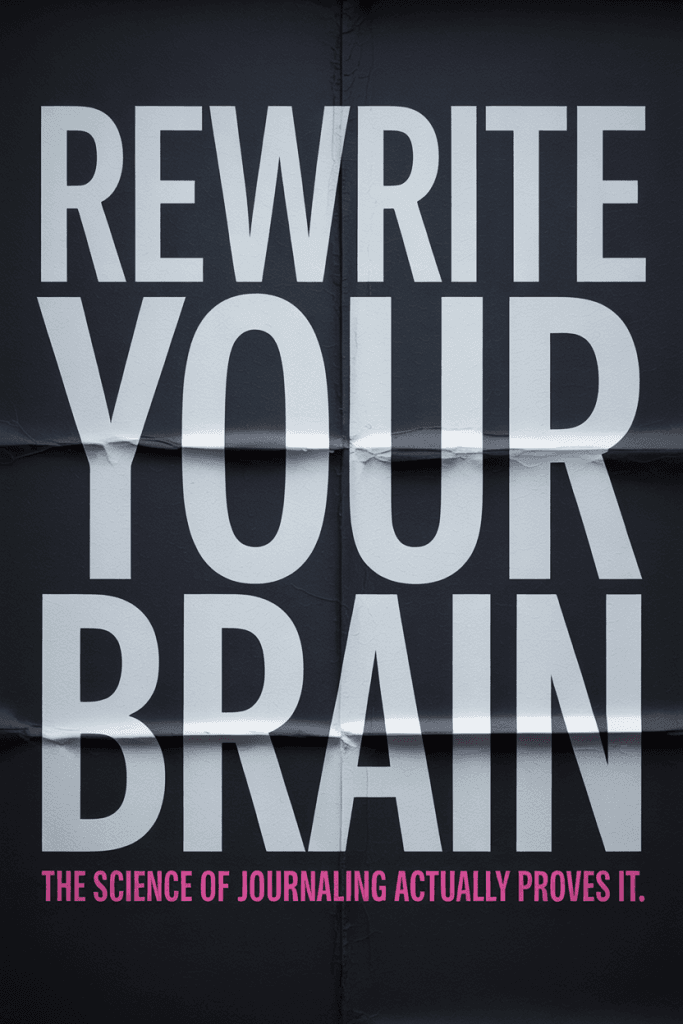The science of journaling proves that putting pen to paper is more than a self-care aesthetic it’s literally reshaping your brain. Backed by psychology and neuroscience, journaling can reduce stress, build confidence, improve memory, and help you create a mindset that’s actually built to thrive.
If you’ve ever wondered why so many successful people journal every day, the answer isn’t magic. It’s science. Let’s break down how and why this simple habit can create real transformation.

🧠 The Science of Journaling: What’s Really Happening in Your Brain?
Here’s the breakdown, science-style but don’t worry, we’re skipping the boring textbook tone.
🧩 Activates the Prefrontal Cortex
This part of your brain helps you think before you react. When you write, it kicks in helping you reflect, make better decisions, and process emotions more clearly.
🧯 Reduces Activity in the Amygdala
AKA your internal panic button. Studies show journaling helps calm it down, reducing anxiety and that overwhelming feeling you just can’t shake.
→ You can see this in research published in Psychosomatic Medicine, where expressive writing reduced stress responses.
🔁 Boosts Neuroplasticity
Your brain’s ability to adapt and change? That’s neuroplasticity. And journaling supports it. According to Harvard Health, consistent reflective writing helps your brain rewire negative thinking patterns.
🧠 Improves Memory + Comprehension
A clinical trial in the National Library of Medicine found journaling can boost working memory capacity. So yeah, your journal could literally make you sharper.
→ Want beginner-friendly techniques? Hit up our journaling styles guide.
💬 Why Journaling Just Hits Different for Your Mindset
1. Less Stress, More Peace
Dumping your thoughts onto paper helps externalize stress. It’s like pulling anxiety out of your head and locking it onto the page.
→ Expressive writing is proven to lower stress, according to Cambridge University Press.
2. Gratitude Journaling Literally Changes Your Mood
Writing what you’re grateful for builds optimism, period. The Greater Good Science Center at UC Berkeley found that people who did it regularly felt happier and more satisfied overall.
→ Need inspo? Try these 30 prompts.
3. The Science of Journaling says It Builds Emotional Intelligence
When you write about your thoughts and feelings, you learn your patterns. You get better at managing your reactions, understanding your needs, and connecting with others. Hello, emotional glow-up.
4. Goal Journaling = Big Results
A study from Dominican University showed people who wrote their goals down were 42% more likely to hit them.
→ Learn how in Journaling with Purpose.
5. You Solve Problems Without Spiraling
Writing forces you to slow down and organize your thoughts. You’ll find creative solutions that weren’t showing up while doom-scrolling.
→ When you’re stuck, try these tricks for blank page panic.

🔁 How to Start a Daily Journaling Practice
1. Pick Your Style
- Gratitude Journaling: 3 things you’re thankful for
- Stream of Consciousness: Let your brain spill it all
- Goal Journaling: Write about your dreams and action plans
- Reflection Journaling: What happened today + how it felt
→ Not sure where to start? Try our beginner’s guide to journaling
2. Pick a Time (and Protect It)
Morning? Evening? Whenever. The key is showing up consistently even for 5 minutes.
3. Romanticize the Setup
Light a candle. Play lo-fi. Grab your favorite pen. It doesn’t have to be fancy, but if your space feels ✨good✨, your brain will want to come back.
4. Don’t Overthink It
You don’t need to be “a writer.” You just need to be you. Let go of perfection and let it flow.
🤝 You’re Not Alone: Join the Journaling Movement
Sure, the brain science is cool but journaling is also about connection. People around the world are using daily writing to heal, grow, and glow up.
Start your practice. Share your insights. Tag your favorite journaling prompt. We’re all figuring it out together.

